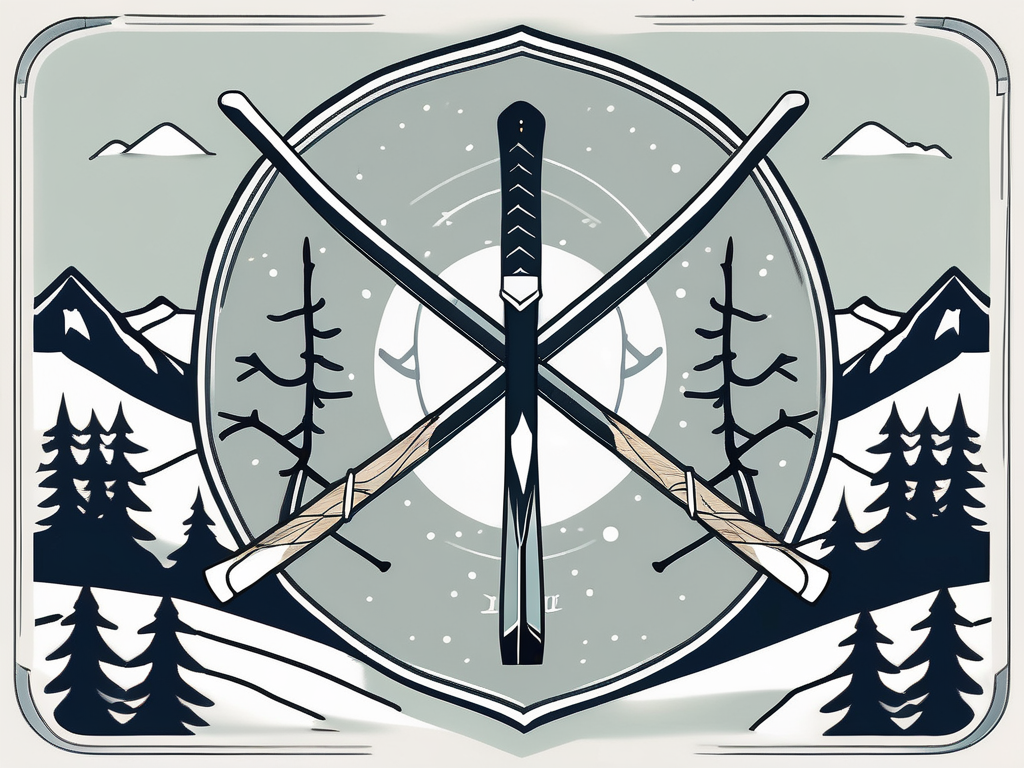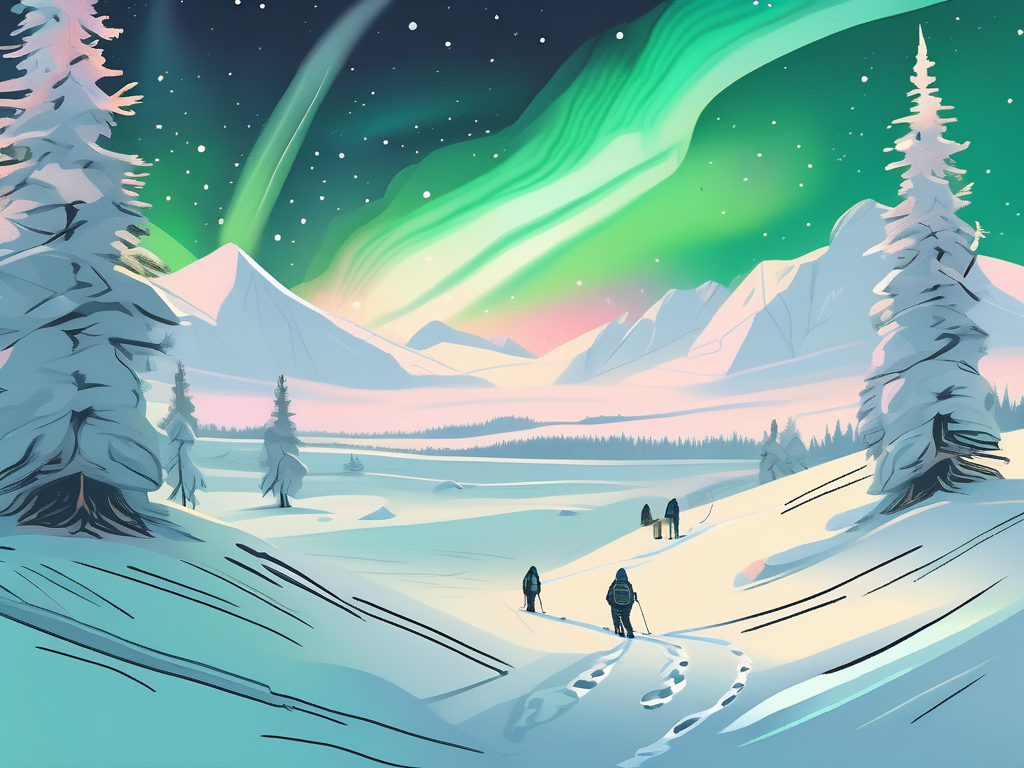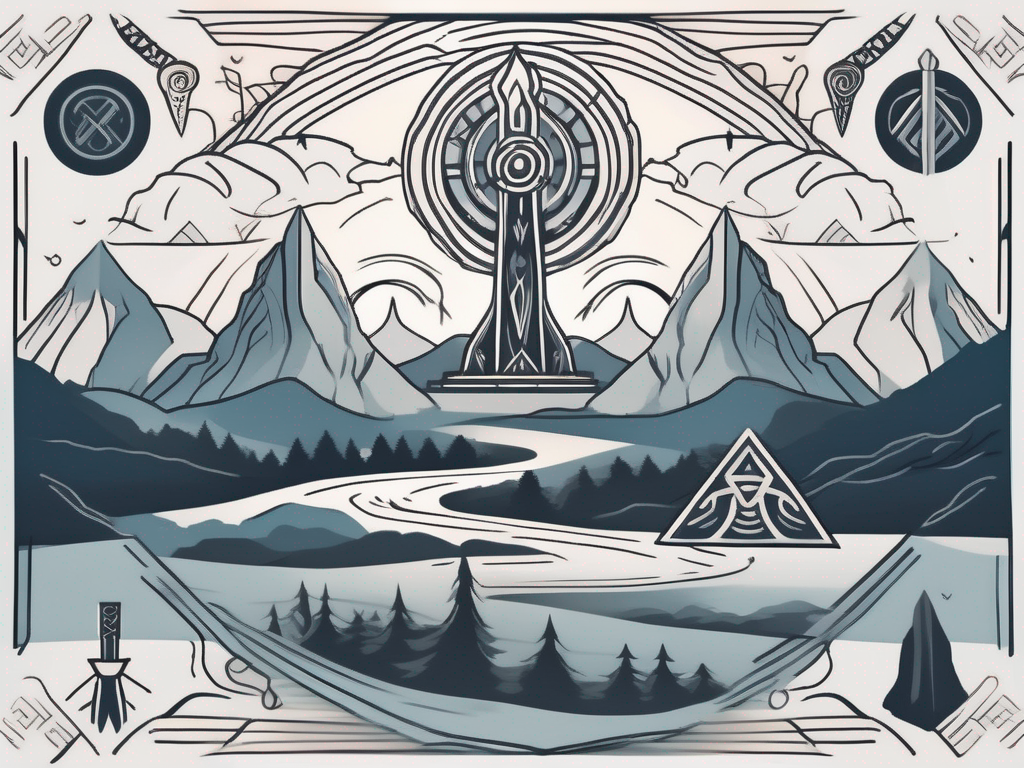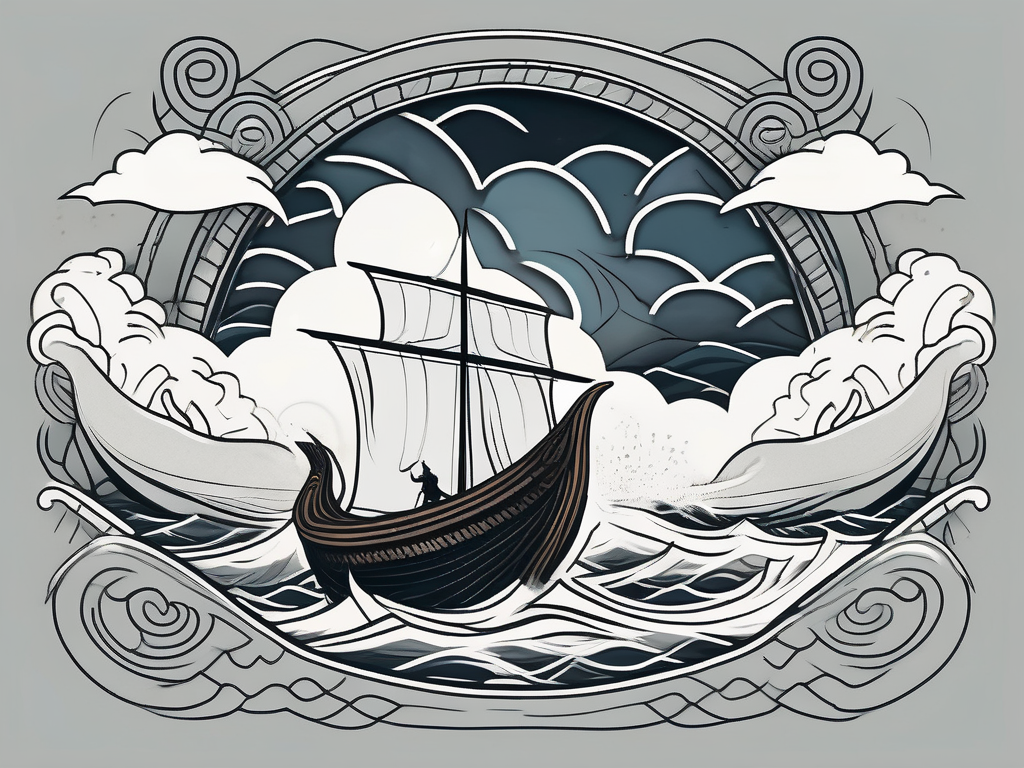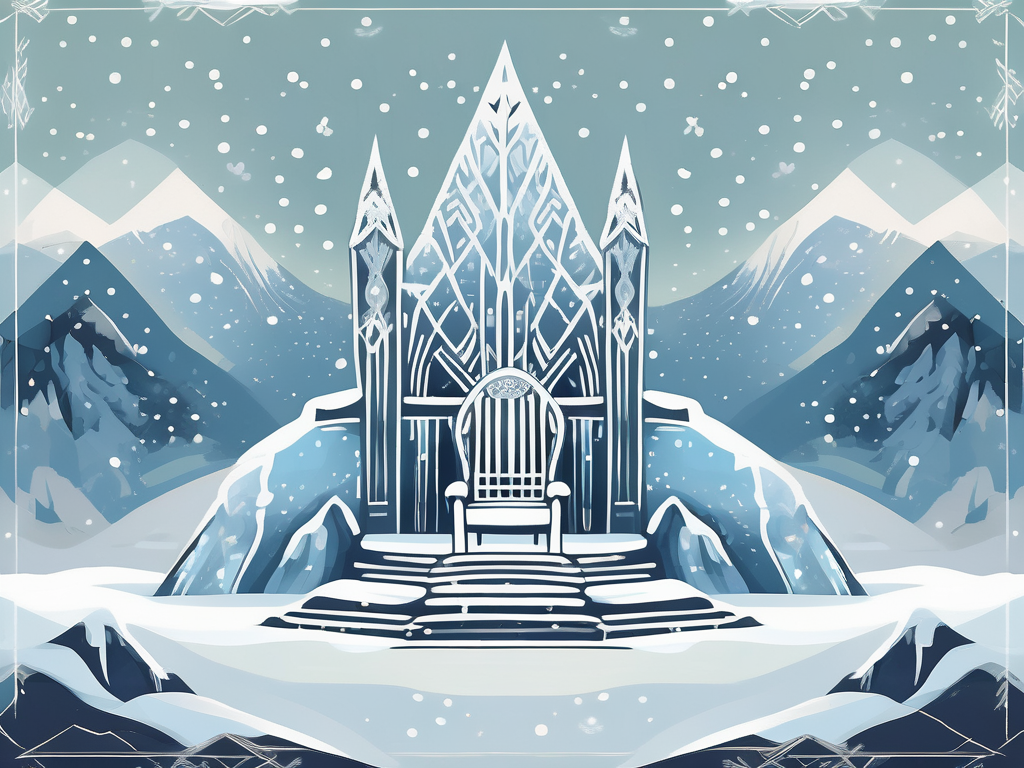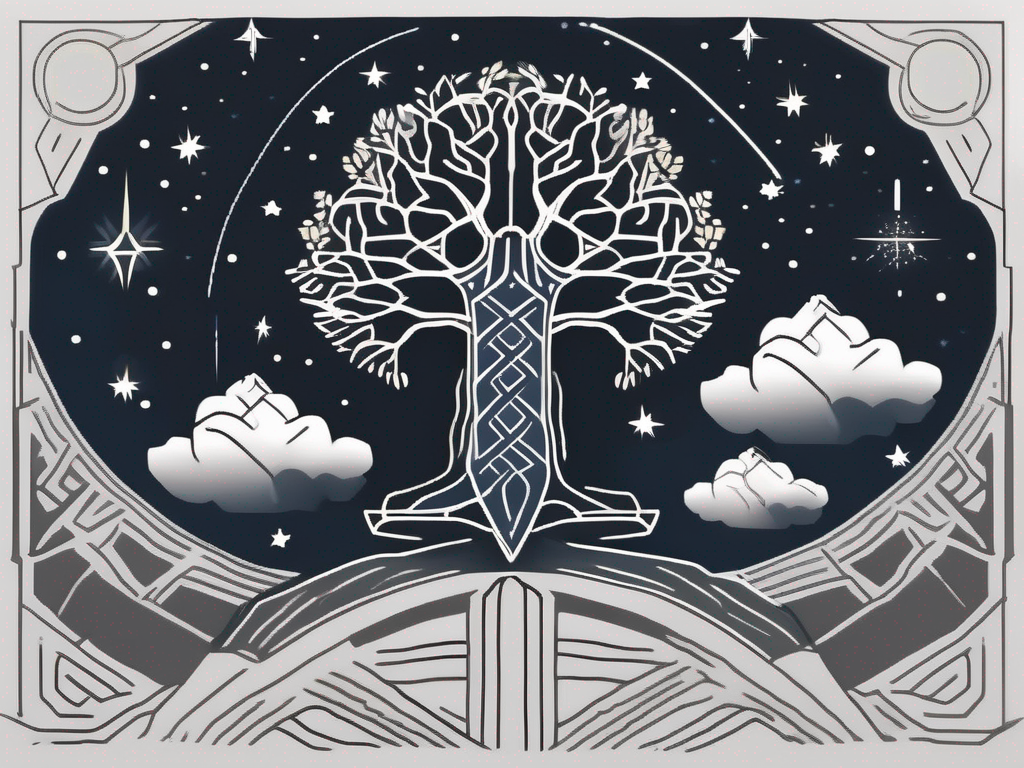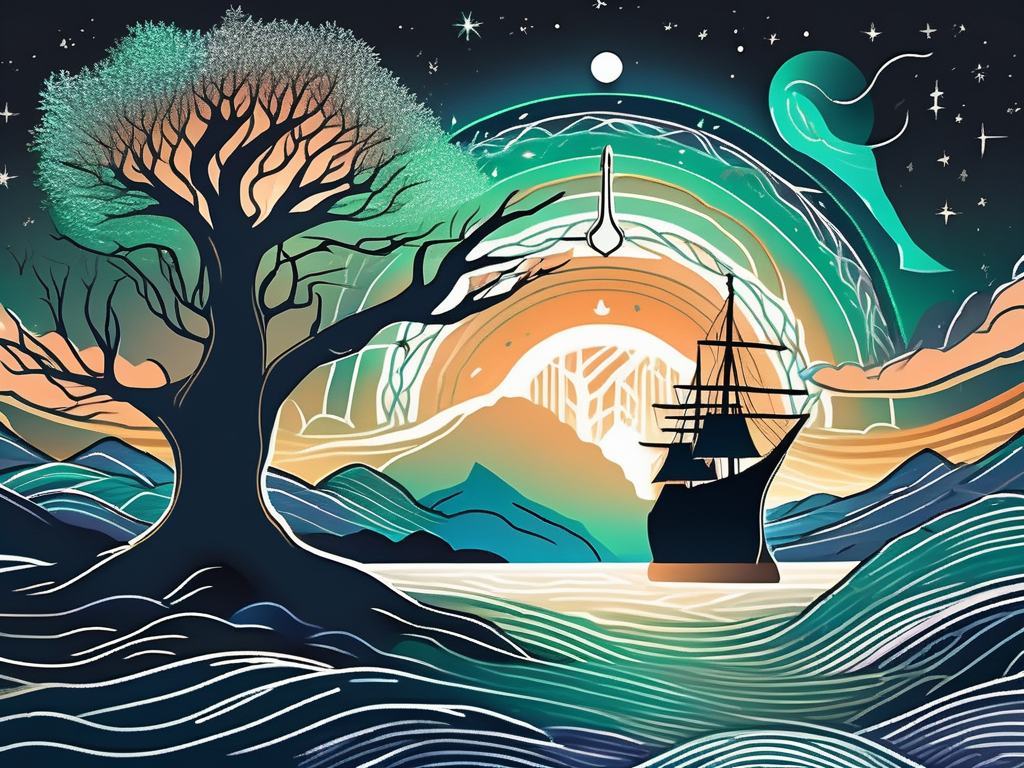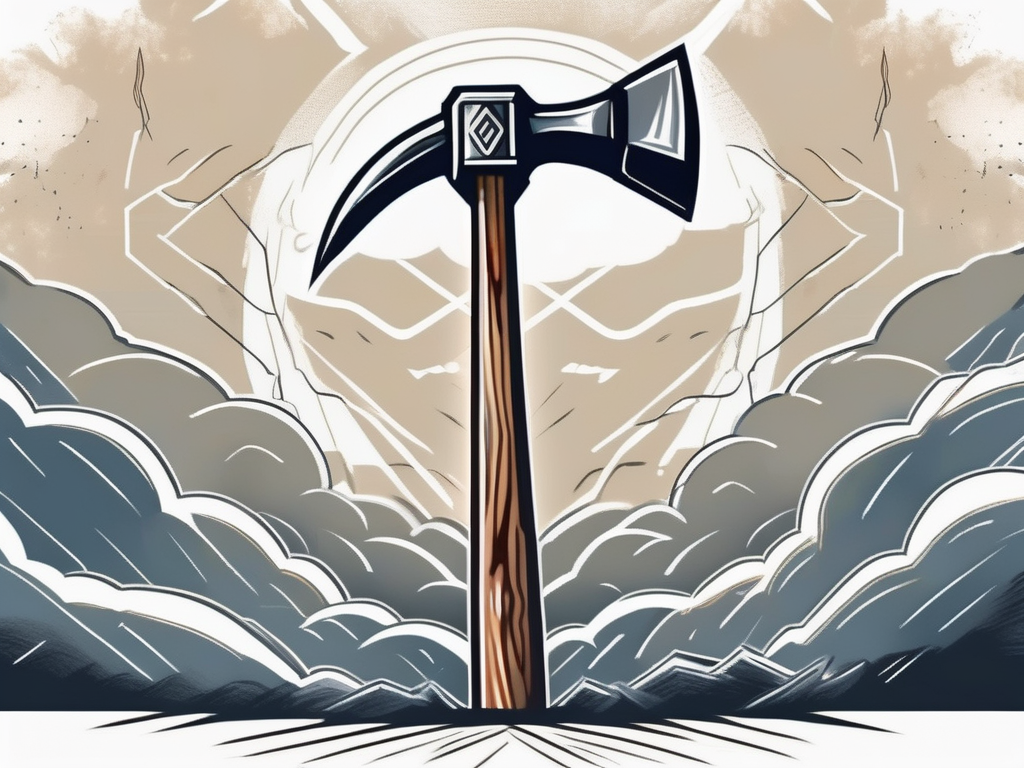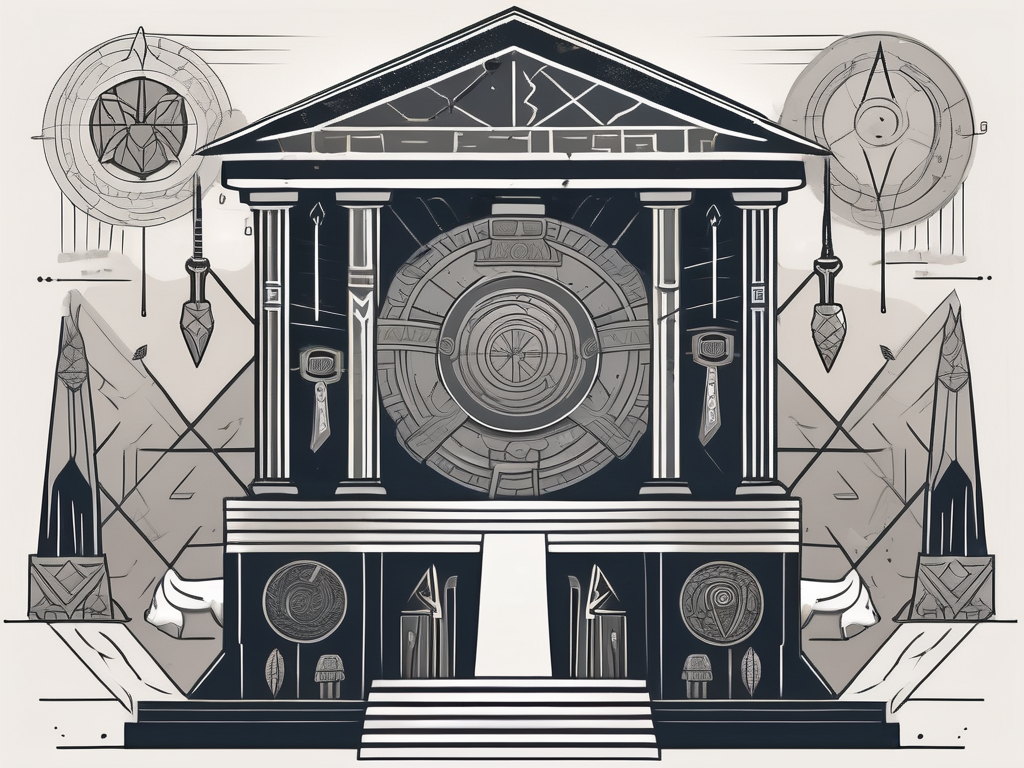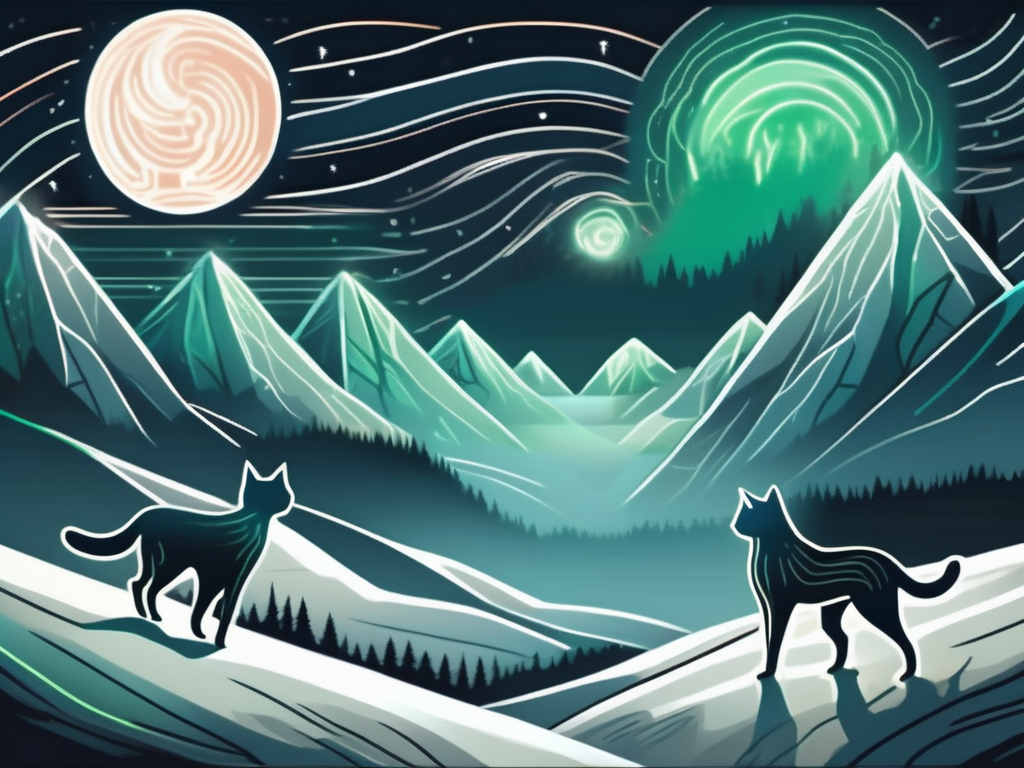Norse mythology is a rich tapestry of captivating tales and fierce gods. Among these deities is Ullr, a figure often overlooked but possessing intriguing attributes and a notable place in Norse culture. Let us dive into the realm of Norse mythology and discover the stories and legends surrounding Ullr, the god of winter, archery, and skiing.
Understanding the Norse Pantheon
Before exploring Ullr’s role, it is essential to grasp the concept of the Norse pantheon. The Norse gods represented various aspects of life, nature, and human existence. These deities were worshipped by the Vikings, who believed in their power and influence over the world.
The Norse pantheon was a complex and interconnected web of gods and goddesses, each with their own unique characteristics and domains. From Odin, the Allfather and the ruler of Asgard, to Thor, the mighty god of thunder, and Freya, the goddess of love and beauty, the pantheon was filled with key figures who played crucial roles in the Norse cosmos and the lives of the ancient Norse people.
Key Figures in Norse Mythology
Within this expansive pantheon, certain gods and goddesses hold prominent positions. Odin, known as the wise and powerful Allfather, was not only the ruler of Asgard but also the god of war, wisdom, and poetry. He was often depicted as a one-eyed, long-bearded figure, and his thirst for knowledge and desire to protect his realm made him a central figure in Norse mythology.
Thor, the mighty god of thunder, was another key figure in the Norse pantheon. Known for his incredible strength and his trusty hammer Mjolnir, Thor was the defender of Asgard and mankind. He was often called upon to protect the gods and humans from the chaotic forces of the giants and other malevolent creatures.
Freya, the goddess of love and beauty, brought joy and harmony to the Norse pantheon. She was known for her enchanting beauty and her ability to bring fertility and prosperity. Freya was also associated with war and death, as she had the power to choose half of the warriors slain in battle to join her in her realm, Folkvangr.
The Role of Gods in Norse Culture
The gods held immense significance in Norse society, as they provided protection, guidance, and meaning to their worshippers. These deities were not distant or untouchable; instead, they engaged in everyday affairs and interacted with humans on numerous occasions.
The Norse people believed that their gods were not only powerful but also flawed, just like mortals. This made them relatable and allowed for a deep connection between the gods and their worshippers. The gods were seen as protectors and patrons, and individuals would often seek their favor through offerings and rituals.
Furthermore, the gods were believed to have a direct influence on various aspects of life, including the weather, fertility, and success in battle. The Norse people would pray to the gods for favorable conditions and blessings, and they would also attribute any misfortunes or hardships to the displeasure of the gods.
In addition to their role in everyday life, the gods were also central to Norse mythology and storytelling. Their epic tales and adventures were passed down through generations, shaping the cultural identity of the Norse people. These stories not only entertained but also provided moral lessons and insights into the nature of the gods and the world they inhabited.
Overall, the Norse pantheon was a rich and vibrant tapestry of gods and goddesses, each with their own unique roles and characteristics. Their influence extended beyond the realm of mythology and played a vital role in the lives and beliefs of the ancient Norse people.
The Origins of Ullr
Now let us turn our attention to Ullr, a god often referenced but less well-known than popular figures like Thor or Loki. Ullr’s roots can be traced back to ancient Norse texts and creation stories, which unveil his true essence and contributions to the mythology of the North.
Ullr in Ancient Texts
A variety of ancient texts mention Ullr, shedding light on his character and position within the pantheon. In these sources, Ullr is depicted as a skilled archer and the patron deity of hunting and winter activities. His presence in these texts signifies his importance in Norse mythology.
One such ancient text, known as the Prose Edda, describes Ullr as the stepson of Thor and the son of Sif, the goddess of fertility. In this account, Ullr is portrayed as a handsome and agile god, always seen with his trusty bow and arrow. He is said to have the ability to hit any target with unmatched precision, making him the ultimate archer among the gods.
Another text, called the Poetic Edda, tells the tale of Ullr’s adventures in the frozen wilderness. It describes how he roams the snowy landscapes, guiding hunters and protecting them from harm. Ullr is said to have a deep connection with nature, often communicating with animals and commanding the forces of winter.
Ullr’s reputation as a skilled archer and his association with hunting and winter activities made him a beloved figure among the Norse people. They would often invoke his name before embarking on hunting expeditions or engaging in winter sports, seeking his blessings and guidance for a successful endeavor.
Ullr’s Place in Norse Creation Stories
According to Norse creation stories, Ullr played a crucial role in shaping the world as we know it. Some accounts describe him as a key figure in the creation of the cosmos, while others depict him as a witness to the birth of the first gods. These tales solidify Ullr’s place in the rich tapestry of Norse mythology.
In one creation story, Ullr is said to have been present when the first gods emerged from the primordial void known as Ginnungagap. As the gods came into existence, Ullr stood by their side, offering his wisdom and guidance. It is believed that his presence during this pivotal moment in Norse mythology signifies his importance in the divine hierarchy.
Another creation story portrays Ullr as the architect of the winter season. According to this account, Ullr crafted the intricate patterns of frost and ice that blanket the earth during the colder months. He is said to have a deep understanding of the delicate balance between nature and the changing seasons, ensuring that winter arrives and departs in harmony with the natural order.
Ullr’s role in the creation stories not only showcases his power and influence but also highlights his connection to the natural world. He is often depicted as a guardian of the wilderness, ensuring its preservation and balance. The Norse people revered Ullr for his ability to navigate the harsh winter landscapes and survive in the harshest of conditions.
In conclusion, Ullr’s presence in ancient Norse texts and creation stories paints a vivid picture of a god who embodies the spirit of hunting, winter, and the untamed wilderness. His skills as an archer and his role in shaping the world make him a significant figure in Norse mythology, deserving of recognition alongside the more well-known gods. Ullr’s legacy lives on in the hearts and minds of those who seek adventure in the great outdoors and embrace the beauty of winter.
Ullr’s Characteristics and Powers
Ullr possesses a unique set of characteristics and powers that set him apart from other gods. As the god of winter, Ullr governs the cold, snow, and the beauty of the frozen landscapes. But his abilities extend beyond weather control; Ullr is also renowned for his expertise in archery and skiing.
Ullr as the God of Winter
Winter holds a special place in Norse mythology and greatly influenced the ancient Nordic way of life. Ullr’s association with this season signifies the importance of harsh winters and the challenges they posed. The Norse people relied on Ullr’s favor for successful hunting trips and the survival of the long, cold months.
Ullr’s Skills in Archery and Skiing
Ullr’s expertise in archery and skiing shapes his persona and mythological significance. Archery, a vital skill for hunting and warfare, demonstrated Ullr’s precision and strength. Similarly, skiing, an essential mode of transportation for the Norse people, highlighted Ullr’s agility and connection to the natural world.
Ullr’s Role in Norse Mythology
Within the realm of Norse mythology, Ullr’s interactions and connections with other gods reveal his role and influence in the pantheon.
Ullr’s Relationships with Other Gods
Ullr shares intricate relationships with fellow Norse deities, as depicted in various mythological tales. He is often noted as the stepson of Thor and the son of Sif, Thor’s mother. These connections establish Ullr as an integral part of the divine family tree and cement his place in Norse mythology.
Ullr’s Involvement in Mythological Events
Throughout Norse mythology, Ullr’s presence can be felt in mythological events and tales. From epic battles to diplomatic endeavors, Ullr’s contributions highlight his importance in shaping the divine narrative of the Norse pantheon.
The Worship and Rituals of Ullr
The worship of Ullr was deeply ingrained in Norse society, with rituals and practices dedicated to honoring this god of winter.
Temples and Sacred Sites of Ullr
Temples and sacred sites dedicated to Ullr were scattered throughout the Norse lands. These places served as centers for religious gatherings, where the community would come together to pay homage to Ullr and seek his blessings for a prosperous winter season.
Ritual Practices and Offerings to Ullr
Ritual practices and offerings were an integral part of Norse religious customs. To sate Ullr’s favor and ensure a successful hunting season, the Vikings would engage in various rituals and make offerings such as animal sacrifices or gifts of food and drink.
Conclusion
In the expansive world of Norse mythology, Ullr’s character and significance shine through. As the god of winter, archery, and skiing, Ullr embodies the harsh beauty of the Norse lands and the challenges faced by the ancient Norse people. His presence in ancient texts and myths, along with his connections to other deities, solidifies his place in the complex tapestry of Norse mythology. Even today, Ullr continues to captivate our imagination and inspire us to explore the rich heritage of the Norse gods.
